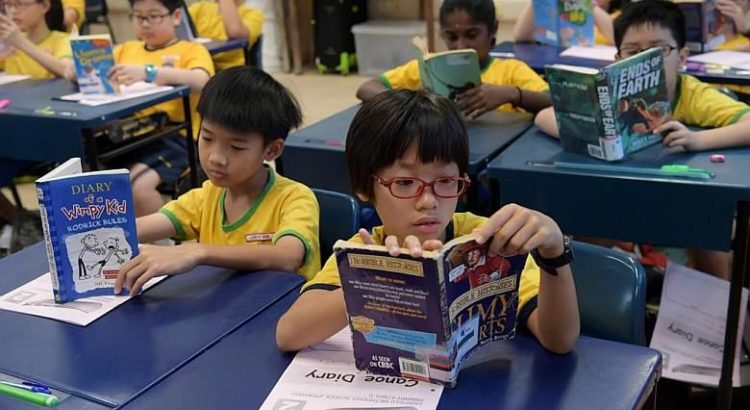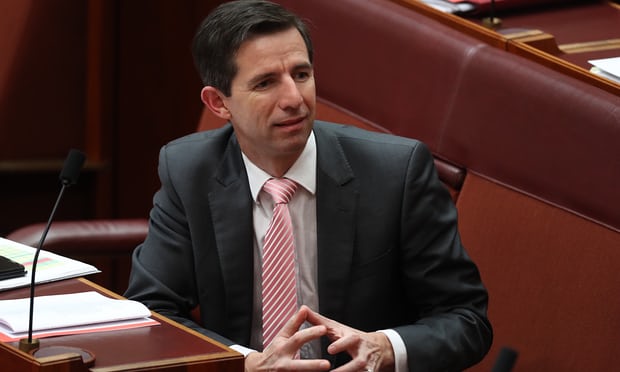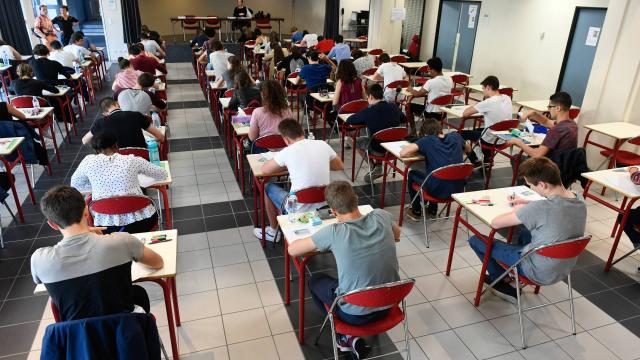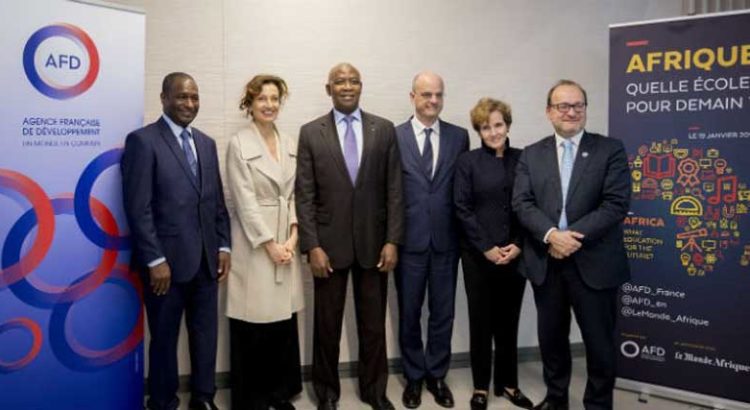Vietnan/Enero de 2018/Fuente: Vietnam News
Resumen:
Hoàng Thị Thảo es un desertor. La última vez que asistió a la escuela, en octavo grado, fue hace 14 años, cuando tenía 14 años.
Pero Thảo nunca perdió su pasión por aprender y todavía lamenta la oportunidad perdida.
La joven mujer de la norteña provincia de Ninh Bình tuvo que abandonar el país para ofrecerle a sus tres hermanos menores la oportunidad de ir a la escuela porque sus padres eran demasiado pobres para poder pagar la escolarización de todos sus hijos.
Poco después de dejar la escuela, Thảo se mudó a la ciudad capital, Hà Nội, para trabajar y mantener a su familia en casa. Unos años más tarde, Thảo tuvo la suerte de ser admitido en un centro de capacitación de cocina de caridad en Hà Nội, donde se capacitó, de forma gratuita, para ser chef. Con su gran pasión por el aprendizaje y la estudiosa, Thảo fue una de las mejores estudiantes del centro, y ahora está trabajando como chef para un hotel de tres estrellas en Hà Nội.
Hoàng Thị Thảo is a dropout.
The last time she attended school, in eighth grade, was 14 years ago, when she was 14.
But Thảo never lost her passion for learning and still rues the missed opportunity.
The young woman from northern Ninh Bình Province had to drop out to give her three younger siblings a chance to go to school because her parents were too poor to afford schooling for all their children.
Soon after she left school, Thảo moved to the capital city, Hà Nội, to work and support her family back home. A few years later, Thảo was lucky to be admitted to a charity cooking training centre in Hà Nội, where she was trained, free of charge, to be a chef. With her strong passion for learning and studiousness, Thảo was one of the best students at the centre, and is now working as a chef for a three-star hotel in Hà Nội.
“I still wish to have a chance to continue my education. At that time, watching my friends go to school, all I could do was cry my heart out,” Thảo said.
“And although I could not go to school, I have tried to learn whenever I can, from friends, colleagues and from books,” she said.
Thảo is one among millions of children in the country who either don’t get a chance to attend school or are forced to drop out at an early age. And most are not as lucky as Thảo, who got the opportunity to get trained and find a stable job.
According to a UNICEF report, released in 2014, over 1.1 million children aged between 5 and 14 in Việt Nam were out of school, including those who’d never attended one and those who dropped out.
According to the Ministry of Education and Training, the percentage of children who attend but subsequently drop out of school tends to increase dramatically with age, from 0.2 per cent at 5 years (kindergarten) and 1.16 per cent at primary school age to16 per cent at 14 (secondary school age) and 39 per cent at 17 (high school age).
Poverty barrier
The UNICEF report analysed barriers and bottlenecks from both the demand side – children and their parents – and the supply side – the education system and related agencies at all levels.
The supply side barriers concerned bottlenecks related to infrastructure and resources, teachers, education management and other systemic issues such as learning programmes, data systems, governance, capacity and financing mechanisms.
On the demand side, poverty was a key barrier preventing children from getting access to proper education.
The out-of-school rate was highest among children with disabilities, children from poverty-stricken families and remote areas, ethnic minority children and children of migrants (from rural areas), according to the study.
The country’s 2014 population and housing survey also showed that the national secondary education graduation rate was low, at 29.5 per cent.
The 2002-2010 Living Standards Survey of the General Statistics Office of Việt Nam cited difficult circumstances and high costs as major reasons for children dropping out of primary school. The survey found that among 20 per cent of the population with the lowest incomes, 7.8 per cent of children 15 years old and above had never attended school, six times as high those among the 20 per cent higher income bracket.
Far-reaching proposal
As part of efforts to universalise education access, the Ministry of Education and Training has proposed free tuition for all public secondary schools.
At present, free tuition only applies to public primary schools.
The proposal is part of draft amendments to the Law on Education that the ministry has submitted to the Government.
Under this proposal, public schools will charge no tuition fees until students finish their secondary education (grade 6-9).
Nguyễn Đình Hương, former vice chairman of the National Assembly’s Committee for Culture, Education, Youth and Children, said it was time to universalise education through secondary education, adding that it was also a global trend.
“Children need to get (free) access to education until they finish their secondary school (grade 9) and it is better if they can do that until they finish the grade 10. It would equip the children with basic knowledge and skills, from that, they can continue higher education (if they can afford it) or choose vocational training to have a better future,” he said.
Nguyễn Quốc Vương, an education expert, said providing free tuition fee for students through secondary school would be a fulfilment of the responsibility and obligations of the State towards people as also the responsibility of a society as a whole.
“The current tuition fee level is affordable for many people, but there is a huge gap between different regions in Việt Nam, so it is still a barrier preventing many children from going to school,” he said.
The tuition fee for the 2017-2018 academic year is VNĐ110,000 (US$4.8) per month per student for secondary schools in urban areas, VNĐ55,000 in rural areas and VNĐ14,000 in mountainous areas, according to the education ministry.
According to a recent study carried out by the ministry covering 18 countries representing four continents – Asia, Europe, America and Africa – including low-income, middle-income and developed countries, 33 per cent provide free tuition for preschool education, 100 per cent for primary schools, 61 per cent for secondary schools and 44 per cent for high schools.
Vương, author of the book “What Việt Nam can learn from Japanese education”, said that in Japan, the idea of education universalisation was accepted very early. After the Second World War, equal education opportunity for all became the nucleus of Japanese education system.
In Japan, since 1947, students from grade 1 to 9 do not have to pay any tuition fee under its Fundamental Law of Education.
“Particularly worth noting is that Japan issues textbook free of charge to all students,” Vương said.
“Việt Nam can learn from Japan in effectively implementing the principle of equality in providing education opportunities,” he said.
Is it feasible?
Many people, including experts, have expressed concerns about the State being able to afford universalisation of secondary education in the country, given the context of State Budget overspending and the small portion typically allocated for education.
Ngô Văn Thịnh, deputy head of the ministry’s Department of Planning and Finance, said basing on the ministry’s initial calculations, State Budget spending on education would not increase by much if the policy was implemented.
It is estimated that the State will spend around VNĐ2 trillion ($89 million) per year to cover tuition fees for public secondary education.
The ministry would work with Ministry of Finance to build a plan to ensure enough funds to implement the policy if it was approved and would submit the plan to the Government and National Assembly for consideration, he told Tuổi trẻ (Youth) newspaper.
The policy was in line with the 2013 Resolution of the Party Central Committee on basically and comprehensively renewing education and training, he added.
To help ensure efficiency if the policy is approved, the ministry and local authorities would increase inspection and supervision, preventing illegal collection of other fees at schools and strictly punish violations, Thịnh said.
Education expert Vương noted that wastefulness and corruption still existed in the education sector. Many investment projects had proved ineffective and the management there was a lack of good management over the purchase of education equipment or infrastructure construction.
“If we review and have reasonable and effective inspection and supervision mechanism to prevent wastefulness, we would have enough funds to provide free tuition for students through secondary education,” he said.
Just a step
Providing secondary education for free will be a big step in improving access to basic education and training for all children, but more needs to be done if the country’s human resource quality is to improve and meet the demands of the fourth industrial revolution.
Việt Nam has provided free compulsory education for primary pupils for nearly 30 years, but the quality of the nation’s workforce has remained low.
According the 2014 population and housing survey done by the General Statistics Office of Việt Nam, over 82.8 per cent of workers aged 15 and older received no technical training.
The latest Global Competitiveness Report of the World Economic Forum released last September ranked Việt Nam 89 out of 137 surveyed countries in terms of education quality. Other countries in the region did better, like Singapore, ranked second, and Malaysia, 19.
Former NA deputy Hương said it was time for the education sector to upgrade its training curricula to mould learners into global citizens in the context of regional and global integration.
“Thailand, for example, embarked on a program in 2016 to ensure that all primary schoolchildren are able to speak enough English to handle everyday situations within 10 years,” he said.
Thailand’s target is to achieve greater integration with the ASEAN Community and to increase business, social, cultural and employment opportunities among Southeast Asian countries.
«Việt Nam also needs to attract more qualified teaching staff to help train high-quality human resources,» Hương said.
“It is essential to tailor research as well as teaching and learning for a more globalised world. A creative labour force has the most advantage nowadays, not low-skilled, cheap labour as in the past,” he said.
The draft amendments to the education law will be submitted to the National Assembly for discussion at its fifth session in May and is expected to be adopted at the sixth session in October.
Chef Thảo got the last word: “I hope that younger generations will have a chance to get full access to secondary education, not like me. If this happens, they will have better chances of enjoying a better future.”
Fuente: http://vietnamnews.vn/society/421590/free-secondary-education-a-vital-stepping-stone.html#EIH1okZGDYL5C6DD.97

















 Users Today : 22
Users Today : 22 Total Users : 35435176
Total Users : 35435176 Views Today : 29
Views Today : 29 Total views : 3374734
Total views : 3374734